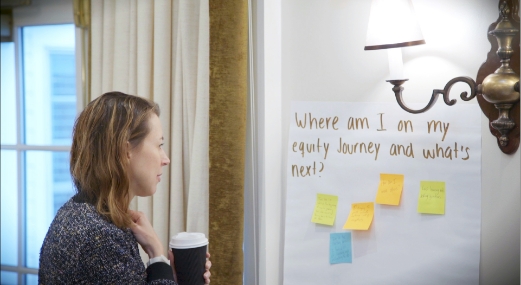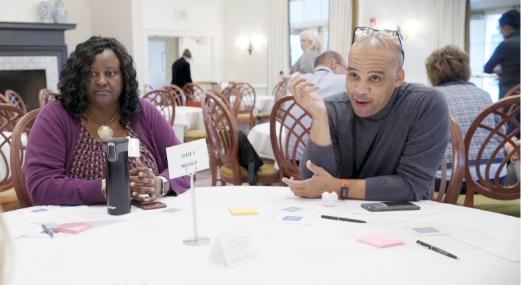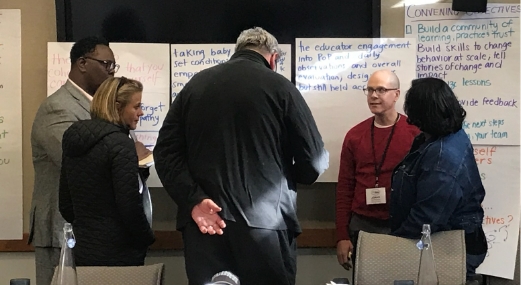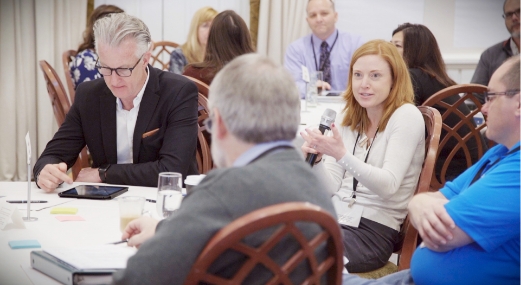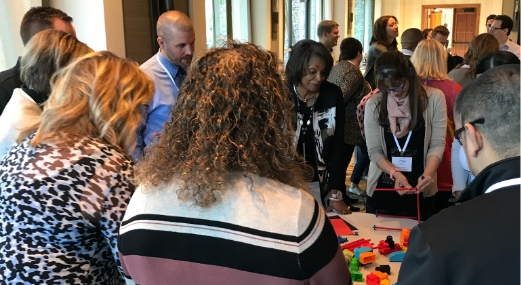Equitable Ways of Thinking & Working
Coherence Framework Elements
EQUITABLE WAYS OF THINKING
Reflect on Individual Identity
Leaders acknowledge that each person brings multiple, intersectional identities to our work. They examine their identities and consistently reflect on the ways it influences their approach, engagement of others and decision making. They understand that their and others’ identities are both fonts of expertise that should be leveraged and can lead to biases and blind spots that can limit their clarity and perspectives.
Acknowledge and Address Bias
Leaders are consciously aware of their implicit biases, regularly reflect on when they notice their own bias in action and create systems and structures to illuminate where bias might be at play. They understand that bias affects our relationships with others and therefore, our relationships to problems and solutions. They seek to move from awareness of implicit biases to actively countering them.
Design at the Margins
Leaders take responsibility for designing a constellation of solutions that ultimately work for all stakeholders, acknowledging that they must start by tackling problems for those who are most proximate to the problem and most in need of a new solution. They know that there is no such thing as an “average” experience and push others when they use the concept of average to design. They understand that if we can create solutions for those most at the margins, we will best learn how to solve problems for everyone.
EQUITABLE WAYS OF WORKING
Frame the Problem
Problems can be used to organize and mobilize efforts around critical issues that directly impact the experience of the most vulnerable students. Leaders believe that problem definition is a critical step in any initiative and can either be used as a tool for equity, or it can perpetuate inequity. They understand that the way we choose to define (or not) a problem directly impacts our ability to solve it. They push themselves and others to make sure problems are defined through the lens of equity. This requires that the problem is described in the context of the specific situation facing those who are being designed with, acknowledging the history of the community, the history of the problem and the history of previously tried solutions. It also requires that the problem is articulated from multiple vantage points: it should be articulated from the points of view of those who are most proximate to the problem as well as the points of view of those who hold the power in the systems that create and perpetuate it – two articulations that are often quite different but equally necessary to fully understand and address the issue.
Explore Solutions
Leaders understand that the best solutions are those developed by people who most deeply experience the problem and seek to let their expertise drive the solution finding process. Leaders also know that finding the best solution requires generating new solutions, reimagining old ones, and getting rid of things that aren’t working. Leaders reduce risk and increase a solution’s chances of success by testing these ideas, learning about their efficacy, and fine-tuning them to meet peoples’ needs.
Learn Forward
Leaders adapt and transform their priorities and strategies through continuous learning and iteration, so problems and solutions evolve with the context. They understand that complex problems will not be fully solved, but will change shape as work is done. Leaders focus on learning as a measure of success of an initiative, and develop systems, tools and a culture that allows for risk and failure in order to capture learning to accelerate impact.
